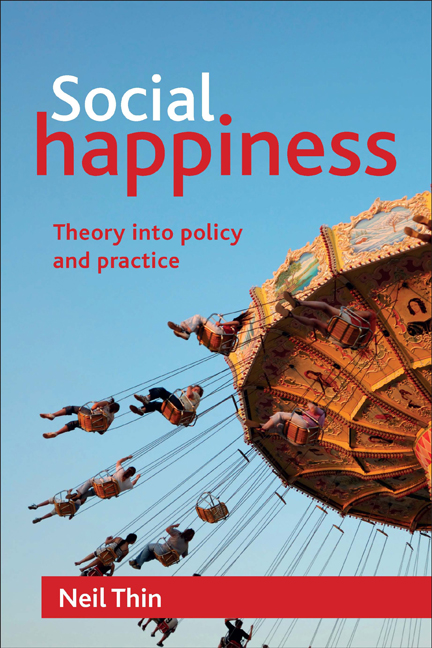four - Thinking ourselves happy: on the policy relevance of both subjectivity and objectivity
Published online by Cambridge University Press: 01 September 2022
Summary
Happiness depends upon ourselves. (Aristotle)
Objectivity requires taking subjectivity into account. (Lorraine Code, 1991, p 31)
It isn't what you have or who you are or where you are or what you are doing that makes you happy or unhappy. It is what you think about it. (Dale Carnegie)
What is inside is also outside. (Goethe)
Traditionally, public policies tended to focus on changing people's ‘objective’ (external) life conditions, whereas the effort to transform ‘subjective’ feelings and interpretations tended to be left to individuals unless things got so bad that they needed the help of counsellors or psychiatrists. Happiness policies, and the rise of positive life coaching, are changing this. But this new emphasis on subjectivity mustn't be seen as a proposal to put ‘mind over matter’, expecting citizens to find their own ‘inside-out’ pathways to happiness.
An argument commonly used against public happiness policy is that, to the extent that our happiness is modifiable, it is we ourselves who can do this, through the power of deliberate control of our own thoughts and feelings. A strong version of this is to be found, for example, in Ricard's popular book Happiness: A guide to developing life's most important skill (2007), which presents the pursuit of happiness as largely a mental exercise, although without denying that external circumstances are at least to some extent relevant. Politicians and confidence gurus advocating self-help will tend to quote sayings like Abraham Lincoln's line that ‘most folks are about as happy as they make up their minds to be’. In a tirade against the shallow, materialistic hedonism of contemporary US ‘popular culture’, parenting guru Jim Taylor writes that in contrast to pleasure, ‘Happiness … comes from within. It does not come from what we do, but rather from who we are and what we value. Happiness can never be provided to us, but we can only find it ourselves’ (Taylor, 2005, p 178).
Happiness, in more extreme versions of this argument, is all or nearly all controlled by the mind.
- Type
- Chapter
- Information
- Social HappinessTheory into Policy and Practice, pp. 59 - 68Publisher: Bristol University PressPrint publication year: 2012



